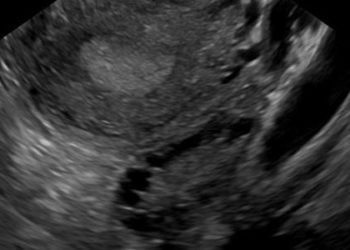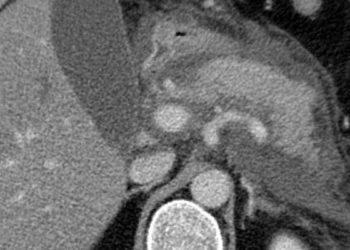Liraglutide addition to high-dose insulin in type-2 diabetes improved glycemic control
1. In this small randomized controlled trial, addition of glucagon-like peptide 1 receptor agonist, liraglutide, to patients with type-2 diabetes receiving high-dose insulin therapy was associated with improved glycated hemoglobin (HbA1c) levels, weight loss, and patient satisfaction at six months.
2. Liraglutide therapy was associated with more hypoglycemic events during the first month of therapy compared to placebo, but overall rates of events at six-month follow-up did not differ. The overall follow up period was short, so long-term outcomes of this regimen could not be determined.
Evidence Rating Level: 1 (Excellent)
Study Rundown: Type 2 diabetes remains a major health problem worldwide with close to a one-third type 2 diabetics requiring insulin therapy to maintain glycemic control. Insulin therapy at high doses can cause weight gain, and thus further insulin resistance. This study evaluated the safety and efficacy of the addition of a glucagon-like peptide 1 receptor agonist (liraglutide) versus placebo in type-2 diabetic patients receiving a stable regimen of high-dose insulin (>1.5 units/kg/day).
After a six-month follow-up period, the liraglutide group demonstrated significantly improved glycated hemoglobin (HbA1c) levels compared to the placebo group, which had no significant change from baseline. The liraglutide group also underwent significant weight loss. Hypoglycemic events were more frequent in the first month for the liraglutide arm, but there was no difference in hypoglycemic events overall after six-month follow-up. Patients in the liraglutide group also reported improved glycemic control perception, and satisfaction with therapy. The strength of study was in its design (RCT, intention-to-treat analysis), which improved the validity of the results. However, confounding the study was the unbalanced number of individuals intolerant of metformin (with fewer patients in the placebo group receiving metformin). Long-term meaningful endpoints, such as delayed effects of liraglutide on glycemic control, end-organ damage, and mortality were not evaluated in this study.
Click to read the study, published today in JAMA Internal Medicine
Relevant Reading: The effect of addition of liraglutide to high-dose intensive insulin therapy: a randomized prospective trial
In-Depth [randomized controlled trial]: This study enrolled patients between 2012 and 2015 with uncontrolled type 2 diabetes (HbA1c 7.5% to 11.0%) on high-dose insulin (>1.5 U/kg/d) without major uncontrolled comorbidities and no history of major pancreatic disease. Following a 10 day placebo only run-in period, patients started liraglutide injections titrated up to 1.8 mg/d. Follow-up occurred at 1, 2, 4, and 6 months. Hypoglycemic events were recorded as any documented (<70 mg/dL), moderate (<54 mg/dL), or severe hypoglycemic (symptomatic requiring intervention). Insulin therapy was reduced by 20% if initial HbA1c was less than 8.0% and was titrated for safety or else kept at stable dosing.
The study enrolled 71 patients (35 into treatment arm and 36 placebo arm) with 93% completed follow-up at 6 months. Patients were all on maximum tolerated metformin, though 39% of patients in the placebo arm were intolerant of metformin compared to 20% in the treatment arm. From a baseline mean HbA1c of 9% the liraglutide group lowered to 7.9% (p < 0.001) while the placebo group maintained a mean of 8.9%. Mean treatment difference was -0.9% (95%CI -1.5 to -0.4, p = 0.002). For the liraglutide group the weight loss was -2 kg (95%CI -3.4 to -0.6 kg, p = 0.007) compared to the placebo weight change of 0.4 kg (95%CI -1.0 to 1.7 kg, p = 0.6). Total daily dose of insulin did not significantly differ between groups. Rate of any hypoglycemia during the first month was high in the liraglutide group (2.30 vs. 0.91 events/person-month, p = 0.01) but there was no difference after 6 months (p = 0.25).
Image: PD
©2016 2 Minute Medicine, Inc. All rights reserved. No works may be reproduced without expressed written consent from 2 Minute Medicine, Inc. Inquire about licensing here. No article should be construed as medical advice and is not intended as such by the authors or by 2 Minute Medicine, Inc.








